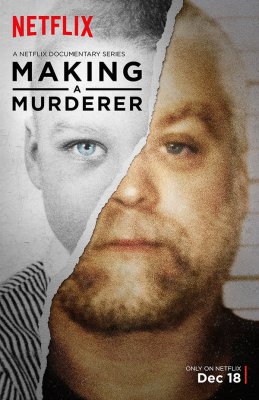This weekend I finally gave in and started watching the series on Netflix “Making a Murderer”. If you were like me and haven’t started binge watching this documentary here is a brief synopsis – Steven Avery gets convicted of a sexual assault that he didn’t commit. He spends 18 years in prison before DNA evidence exonerates him.
That alone would be a great movie. But there’s more…
A short time later he gets accused of committing the murder of a young woman. The series takes you through the happenings leading up to the trial, including the investigation by the police and video interrogations.
Steven Avery’s attorneys put on a masterful defense demonstrating how the police are framing Avery for the murder. Even a skeptical attorney like myself was caught thinking “this is nuts, the police did frame him!”- It is like something out of movie.
If you watch the series you will likely end up shaking your head or shouting at the TV at the blatant injustice that is unfolding. It is hard to believe that something like this could happen in the American justice system.
What this Series Should Teach You About How Courts Make Rulings
Early on in my career, I worked as a criminal prosecutor for the Maricopa County Attorney’s Office (MCAO). I work in the civil area now, mostly helping people with their debt problems, either through defending them in court or through the bankruptcy system.
In my short stint as a prosecutor, I learned two things: (1) the legal system is made of imperfect people who are trying to do their best but definitely come to the process with their own biases; and (2) the adversary legal system we have is a competitive one. Prosecutors want to win not only because they want to impose justice, but because they simply want to win their case.
I played football in college (go BYU!) and I found that I would get the same competitive feelings and drive in presenting a case to the court as a prosecutor as I would get in playing in a game on a Saturday afternoon.
While prosecutors generally kept this competitive streak in check, sometimes it reared its ugly head.
This happens in the world of civil cases as well.
I represent a lot of consumers who have been sued by debt collectors. Often these debt collectors show up to trial with little admissible evidence and despite almost no evidence against my clients sometimes we walk away with a judgment being entered against us.
This is a frustrating byproduct of a legal system run by imperfect people who are generally trying to get the correct outcome.
But I still think Steven Avery is innocent!
Schedule a Free Consultation!
 John Skiba, Esq.
John Skiba, Esq.
We offer a free consultation to discuss your debt problem and help you put together a game plan to eliminate your debt once and for all. Give us a call at (480) 420-4028

